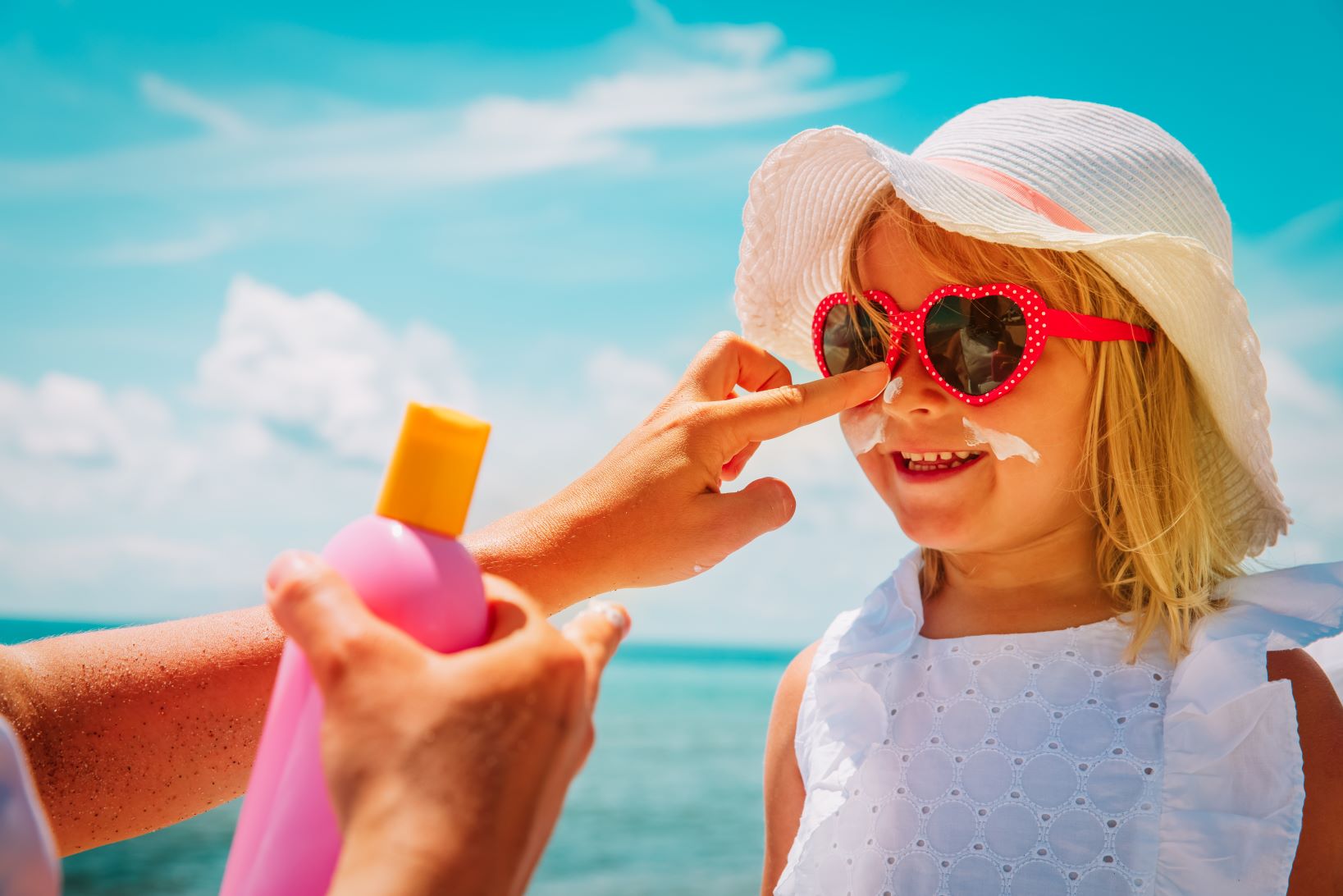By: Marlee Morrison, CHI St. Joseph’s Health Community Health Director
The rates of skin cancer are increasing, and the more time you spend in the sun without protection, the more at risk you are. It’s really important to protect yourself and your family from UVA and UVB rays. They are cancer-causing and they age you. So, the importance of keeping yourself protected from the sun just can’t be overstated.
Who Should Wear Sunscreen?
Everyone should wear sunscreen. The only people who shouldn’t wear sunscreen are babies under 6 months of age because their skin can be a little bit sensitive. They should be protected through shade or clothing. But everyone else, if they’re spending any time in the sun, should be wearing a broad-spectrum sunscreen.
Types of Sunscreen
There are two different kinds of sunscreen that you can wear:
- Chemical Sunscreen: These sunscreens usually have active ingredients like avobenzone or oxilate. When applied, they absorb the sun’s rays and protect your skin.
- Mineral Sunscreen: These sunscreens usually contain titanium dioxide or zinc oxide. They act as a physical barrier against the sun.
Both types are widely available in stores.
SPF Recommendations
- Everyday Use: SPF 30
- Extended Time in the Sun: SPF 50 or higher
Beyond Sunscreen: Additional Protection
Clothing can shield you as well, especially if you’re an outdoorsy type person. There are shirts that have UPF (Ultraviolet Protection Factor) in them, providing protective factors. It’s nice to have not just the sunscreen, but then also maybe layer with a hat and also a shirt that you can put on if you feel like you’ve been in the sun too long.
Don’t Forget Your Eyes!
It’s also important to wear sunglasses. The sun can cause macular degeneration and cataracts. Protecting your eyes from those UV rays is really important.
Sunscreen for Children
When looking at sunscreen for children, there are ones that are formulated more specifically for them. Usually, those are mineral-type sunscreens because they can be less irritating to sensitive skin.
You obviously want to be aware of how long they’ve been out in the sun. If you’ve reapplied the sunscreen every 90 minutes or so, or if they’ve been in the water a lot, if they need their sunscreen reapplied. It’s really important to protect children from the sun. Any blistering that occurs before the age of 18 more than doubles your risk for melanoma as an adult. So, keeping kids protected from the sun, using good sun sense, and reapplying often when you’re outside will go a long way to keeping you not only cancer-free but decreasing those aging effects of the sun as well.
When to Be Extra Careful
Anytime the sun is out, especially in the summer, you’re at risk. You can check the UV index in your weather apps now. The higher the UV index, the quicker you’re going to burn. But just don’t take for granted that just because the UV index is low, it doesn’t mean you can’t still get a sunburn if you’re out or you don’t still need sunscreen. Everyone should wear sunscreen.
Busting Sunscreen Myths
There’s some myth that some people don’t burn as easily and may be better protected. But everyone who spends a length of time in the sun is going to have a risk for basal cell carcinoma and a risk for melanoma. And it doesn’t necessarily have to do with what type of skin you have. That being said, some people are more fair and may burn more easily, but as a general rule, everyone should wear sunscreen when they’re out in the sun for any length of time.
Sunscreen Safety
There’s been some disinformation about the importance of protecting yourself from the sun. People are concerned about sunscreen that it is not safe, but sunscreen is rigorously tested. It is very safe. I think the only factor is whether you choose a chemical or a mineral sunscreen really has to do with your preference. Some people have skin that might be more sensitive to one or the other, so they can just choose. But both are safe and effective.
Where to Get Reliable Information
Reading the advice from accredited doctors who are dermatologists are going to tell you and they will all tell you that you need sunscreen. You can look at the FDA website, the CDC website. Those things are going to have scientifically proven and tested information for you. And so just going to trusted sources, talk your local public health office, your local clinic, they should all be providers of good information.

